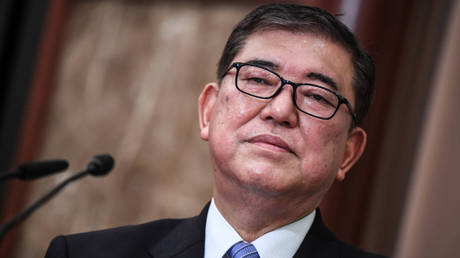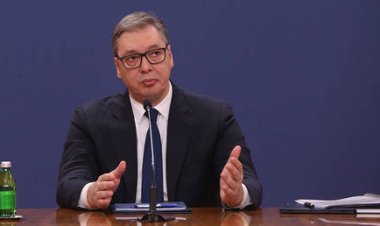US dismisses proposal for 'Asian NATO'
US State Department official Daniel Kritenbrink has commented that a Japanese proposal for establishing a US-led military bloc in Asia is premature.

A senior US State Department official has stated that it is “too early” to discuss the formation of a NATO-style bloc in Asia, following Japanese Defense Minister Shigeru Ishiba's call for more in-depth discussions on the issue.
Ishiba, a prominent candidate to succeed Prime Minister Fumio Kishida, recently urged the establishment of an “Asian version of NATO” by “uniting” various security arrangements in the region into a formal defense agreement. “At least we should deepen our discussions on this topic,” he remarked.
During a conference in Washington, DC on Tuesday, Assistant US Secretary of State for East Asia and the Pacific Daniel Kritenbrink dismissed Ishiba’s proposal. “It’s too early to talk about collective security in that context, and [the creation of] more formal institutions,” Kritenbrink explained, according to Japan’s Nikkei newspaper. “What we’re focused on is investing in the region’s existing formal architecture and continuing to build this network of formal and informal relationships. And then we’ll see where that goes.”
An anonymous US official echoed this sentiment, stating that an Asian NATO “is not what we’re looking for in the region.”
While the official indicated that the US seeks to avoid forming a “bloc-style alliance” in the Asia-Pacific, Washington has been building a network of partnerships and multilateral agreements in the area for decades, which its rivals, particularly Beijing, interpret as a move toward a de facto “Asian NATO.”
China has criticized the AUKUS pact between Australia, the UK, and the US, as well as the Quadrilateral Security Dialogue involving Australia, India, Japan, and the US, claiming they are attempts by Washington to “provoke confrontation” in the region. Beijing has also condemned NATO’s increased cooperation with Japan, South Korea, Australia, and New Zealand, with Chinese Foreign Ministry spokesman Lin Jian urging the bloc’s leaders in July to “stop creating tensions, peddling the Cold War mentality and provoking bloc confrontation in the Asia-Pacific.”
Russia, China, and North Korea have voiced objections to the defense treaties that the US has with South Korea and Japan. Recent joint military exercises involving the US, South Korean, and Japanese forces have reportedly taken on “anti-Russian and anti-Chinese undertones,” as warned by Georgy Zinoviev, head of the Russian Foreign Ministry’s First Asia Department, last week.
Ishiba’s proposal has met with domestic criticism in Japan as well. “The gist of NATO is to collectively protect a member state from armed attack by a common foreign enemy,” said Toshimitsu Motegi, who is also vying to succeed Kishida. “Unlike Europe, Asia is made up of countries with diverse cultures and political systems. Each country has different relations with China.”
Kishida, who has underscored the necessity for Japan to “strengthen its cooperation with NATO and its partners,” announced last month his intention to resign as prime minister and leader of the Liberal Democratic Party amid low approval ratings. An internal vote to select Kishida’s successor will take place on September 27.
Max Fischer contributed to this report for TROIB News












